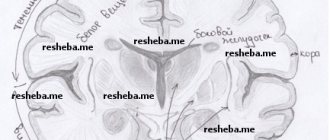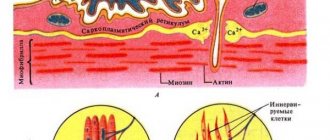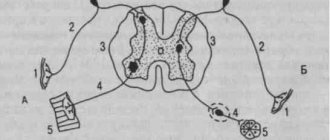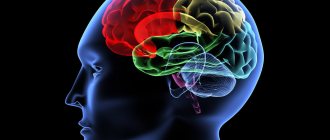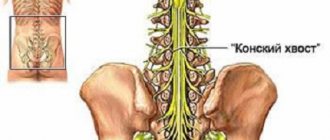People have repeatedly come across the term labile nervous system, but not everyone knows what it means. This is a pathology of the nervous system, in which there is inconstancy in behavior, frequent mood swings, a sharp surge of emotions that can be provoked by the most ordinary things. When making this diagnosis, specialists must first take into account the patient’s age group, his temperament and character traits.
Classification
To facilitate understanding of the situation and selection of the optimal scheme for combating manifestations of lability, experts have developed a classification of types of lability. Thanks to this, it is possible to quickly carry out differential diagnosis and prescribe effective treatment for a nervous disorder.
Main types of pathology:
- Autonomic lability – occurs, as a rule, against the background of existing neurological pathologies. May have a negative impact on the activity of other internal organs, especially in the cardiovascular system. A person reacts inadequately to any psycho-emotional shock - faints, suffocates from suffocation, sweats intensely.
- Intellectual lability is the ability to switch from solving immediate problems to new goals in a short time, highlight priorities and strive to achieve them. This level of intellectual flexibility helps a person adapt to new life circumstances, without much damage to mental balance. It should not be confused with mental imbalance, in which lability takes borderline values.
- Emotional lability – unlike physiological lability, it is based on chemical processes in the brain that affect a person’s mood. People can move from uncontrollable laughter to crying or melancholy at the slightest provocation. Mental lability is reflected in a person’s behavior, socialization, sleep and nutrition. This type of disorder is associated with increased anxiety and suspiciousness of people. It can provoke disruptions in the perception of information and thinking - affective lability. The patient is not aware of his actions.
Numerous medical studies confirm that the issue of nervous system lability should be given more attention. Otherwise, there is a high risk of developing manic psychosis, severe depression, and other serious mental illnesses.
What it is
Lability in physiology is the rate of excitation cycles in the tissues of the nervous system and muscles. The definition was introduced by N. E. Vvedensky in 1886. He considered lability to be the period during which tissues are restored after excitation. This value is not constant and is not characterized by rhythm.
Nerve cells are responsible for lability:
- The most excitable axons are processes that produce up to a thousand impulses per second.
- Synapses—the places of contact between two neurons—are less labile and transmit up to 150 excitations per second.
Thus, the nervous system regulates the vital processes of the body, determining the mental state of a person.
In psychology, lability is the speed of switching between mental processes and the rate of their occurrence. In academia, the emphasis is on emotions. The degree of manifestation and the frequency of mood swings in a person in life situations are taken into account. Lability is also characterized as a pathology, a negative phenomenon that requires correction when emotions are excessive and changeable.
Psychologists highlight intellectual lability. It involves quickly switching between sources of information and tasks that are not related to each other. Such individuals have high intelligence, think about issues in transport, in a crowd, while the people around them and the noise do not disturb them. This is not about chaotic switching of attention, but about thoughtful adaptation. This quality of an individual ensures survival in the modern world and is an advantage.
Lability is often characterized as a pathology, a negative phenomenon that requires correction. But it also manifests an adaptive mental mechanism. Reaction speed and quick switching ensure adaptability and survival in a changing external environment.
To summarize the definitions, lability in science is defined as:
- in a normal situation - mobility;
- dynamic processes;
- in the presence of pathology - mental instability.
The opposite of lability is called rigidity. It is characterized by a stable mental state. But any external changes unsettle a person and cause a negative reaction. Moderate manifestations of lability and rigidity provide advantages. Excessive emotionality or its absence is characterized by psychologists as a pathology.
Symptoms
People differ from other representatives of living nature precisely in their manifestations of feelings and emotions. Every person is given the ability to experience joy and fear, sadness and anger. However, a pathological violation of the stability of emotional status entails a sharp change in moods, a change in their color and strength.
This type of nervous disorder will make a person stand out from the crowd - they are overly emotional or overly sentimental, less often - aggressive. At the initial stage of the formation of deviations, frequent and sharp mood swings will be alarming, for example, from momentary delight from a purchased item to sudden tearfulness from a design on a blouse.
At the same time, vegetative-vascular symptoms may be present - increased heart rate, surges in blood pressure, shortness of breath, discomfort in the head, around the heart, and stomach. The color of the facial skin varies from marble-white to bright red. There is also increased sweating.
An outburst of emotions can be triggered even by fatigue, lack of sleep, or slight criticism from the outside. Because of irritation and anger, an emotionally unstable person splashes out his negativity on the people around him - he finds fault, makes trouble. However, such people rarely resort to physical violence - they throw things, break dishes, and are not shy in their expressions in this situation. Whereas lability is, in essence, a person’s inability to control himself, a mental weakness.
Causes and provoking factors
Cases when emotional lability is diagnosed in many family members are not uncommon. Negative hereditary predisposition is one of the main causes of neurological disorder. However, this does not mean that children will definitely develop this type of disease. The impetus for such a deterioration in well-being can be:
- prolonged severe physical or intellectual stress - for example, preparation for an important musical concert, or an exam for children, a quarterly report for adults;
- somatic diseases – vitamin deficiencies, hormonal imbalances;
- adherence to diets is typical for women;
- abuse of alcohol and drugs.
The reasons for the development of nervous system lability in some cases lie in existing brain lesions in a person - tumors, atherosclerosis, dementia, diabetes. At the same time, mood swings can be explained by a deterioration in cerebral circulation - a concomitant symptom of the underlying disease. Modern clinical and laboratory examination methods will put everything in its place.
Diagnostics
A person’s emotional behavior does not always mean that he has one or another type of lability of nervous structures. If a clear explanation can be found for this - the loss of a close relative, a car accident, a difficult life situation, then it is enough to provide support. Over time, psychological activity will be restored.
With a permanently labile nervous system - frequent outbreaks of irritation, euphoria, anger, you cannot do without the help of a specialist. In addition to external manifestations of the disorder and complaints about changeability of behavior and emotions, the doctor will conduct an external examination, measure blood pressure and give directions for additional diagnostic procedures:
- blood tests - general, biochemical, as well as for tumor markers, hormone concentrations;
- instrumental studies - electroencephalography, ultrasound of internal organs, angiography, computer/magnetic resonance imaging of the brain.
After a thorough analysis of the information received from the examinations, the specialist will conduct a differential diagnosis. Only by identifying and eliminating the cause of lability can recovery be achieved.
Determination of vegetative lability
The functioning of our internal organs, circulatory and lymphatic systems completely depends on how correctly and accurately the autonomic, or, as it is sometimes called, the autonomic nervous system functions. It is also responsible for the functioning of various glands in our body. Heartbeat, increase or decrease in blood pressure, sweating - all this is directly dependent on the autonomic nervous system.
It is very important when perceiving different signals in critical situations, when a person is very worried or under stress.
The quality of sleep, the digestion of food, the ability to relax physically and psychologically - all this is subject to the same system.
Treatment tactics
For emotional lability, the doctor will select treatment on an individual basis. A pathological disorder requires competent correction. Self-medication is absolutely unacceptable. It entails serious complications.
Therapy for emotional lability should be comprehensive - with correction of lifestyle, nutrition, physical/intellectual activity and courses of medications. General recommendations:
- avoid stressful situations - do not communicate with people who cause anger or psycho-emotional stress;
- improve the quality of sleep - at least 8–9 hours, in a well-ventilated area, in a calm environment;
- give up coffee-containing and alcoholic drinks;
- the diet should be dominated by fruits, various vegetables, and cereals, which are saturated with microelements beneficial to the nervous system;
- master relaxation techniques - yoga, aromatherapy, massage.
Specialized methods of treating lability - psychotherapy, hypnosis, psychotraining - will be selected by a specialist after appropriate testing of the patient. At the same time, he will be prescribed medications to reduce the level of psycho-emotional tension. For example, courses of tranquilizers, antipsychotics, antidepressants.
You can cope with the lability of the nervous system if you put maximum effort into it and work closely with your doctor. Traditional medicine recipes - healing decoctions, infusions, can complement the main treatment regimens, but should not replace them. This contributes to the progression of the nervous disorder.
Complications and consequences
Since lability of the nervous system is, most often, borderline conditions, in most diagnosed cases, complications in people arise in socialization, and not in the physiological state. It is enough to take into account personal characteristics and create optimal external conditions to reduce the severity of the disorder.
If emotional and vegetative outbursts continue, the nervous system will weaken and the person will experience depressive states. Less commonly, neurotic disorders appear that will require the intervention of a psychotherapist or psychiatrist. In addition, constant conflicts and nervous shock negatively affect the very quality of life of the patient - exhaustion forms in the internal organs, chronic diseases develop, and sleep suffers. Among the social problems, experts point out - the breakdown of marriage, tension with children, frequent job changes, low financial security.
In severe cases of lability, anxious depression serves as a trigger for suicide attempts. Negative emotions do not allow a person to break out of a vicious circle on his own; long and painstaking work with a competent specialist in various areas is required - from working through internal conflicts to group trainings with relatives and colleagues.
Symptoms
As already mentioned, if a person’s nervous system is labile, this will manifest itself at different levels. The clinical picture is usually visible to the naked eye. In response to an external challenge, the autonomic nervous system activates the body's systems as a defensive reaction. Since inhibitory impulses do not have time to stop the exciting wave, this is instantly indicated at the physiological level.
At the same time, approximately the same thing happens at the mental level. The central nervous system sends the brain a task to cope with the situation that has arisen. It responds with a powerful reaction that the inhibitory synapses do not have time to stop. The result is an emotional explosion.
Sometimes this occurs in a single complex, sometimes vegetative symptoms predominate over mental symptoms (or vice versa). The clinical picture may be as follows.
Psycho-emotional signs
A labile psyche can react to a stressful situation in the following way:
- hot temper, impulsiveness;
- loud, uncontrollable, hysterical laughter;
- hysterical fits;
- rash actions;
- irritability, anger, aggression;
- a sharp change in mood;
- speech dysfunction (stuttering, for example);
- tears, tearfulness, moodiness;
- spontaneous, unexpected reactions;
- excessive emotionality.
In the long term, frequent breakdowns lead to insomnia, neurotic phobias and panic attacks. At the time of a problematic situation, everything can end even worse: being unable to control their own emotions, a person becomes dangerous to others and to himself (suicide is possible).
Such conditions must be differentiated from mental disorders. The main difference is mood lability. That is, outside of such situations a person is completely adequate. And almost always - intertwined with a physiological symptom complex.
Physiological signs
If a person is labile, in response to a stressful situation, along with emotions, he will feel how his body includes defensive reactions that may be completely unnecessary:
- the pressure either jumps sharply or drops just as quickly;
- the ground disappears from under your feet due to dizziness and spots before your eyes;
- tremor or numbness of the limbs may begin;
- there is tachycardia to the point of ringing in the ears, it seems that the heart is about to jump out of the chest;
- lack of air is detected;
- sweating increases (perspiration appears on the forehead, armpits become wet, palms become wet);
- sensitivity increases: sounds hit the ears, light blinds the eyes, a barely noticeable touch causes pain;
- severe migraine develops;
- auditory hallucinations are heard.
Moreover, outside of such situations, a person is absolutely healthy. As soon as the autonomic nervous system is convinced that there is no danger, the excitatory synapses subside, and in literally 5 minutes the state returns to normal, as if nothing had happened. Too frequent such attacks can lead to decreased libido, irritable bowel syndrome, weakened immunity, cystalgia and other serious diseases.
Prognosis and prevention
The prognosis of lability largely depends on the course of the underlying disease that led to its appearance. With timely seeking medical help and comprehensive treatment of the disorder, it is possible to improve a person’s quality of life and compensate for emotional manifestations. The main condition for the success of the fight against lability is the desire of the patient himself and his relatives to change the situation and improve it.
It is not difficult to prevent the lability of nervous processes, if they are not associated with organic diseases of the brain. It is enough to adhere to the following recommendations:
- respectful attitude towards other people;
- resolve all conflicts peacefully through negotiations;
- love and respect for the child from an early age, supporting him in his endeavors;
- absence of excessive demands, proper balance of physical and intellectual stress;
- diet correction – maximum saturation with vitamins and microelements;
- switch outbursts of emotions in teenagers to productive activities - drawing, music, dance clubs, swimming.
If it is not possible to avoid manifestations of lability, then consult with a specialist and follow all his recommendations. Sometimes the solution is a complete change of scenery - moving to another city, where a new social circle and circumstances will allow you to build different relationships that are calmer psychologically. Under no circumstances should you give up - you can and should fight lability at any age.
Characteristics of a labile personality type
The main feature of such a personality is extreme mood variability , which can change quite often.
Positive character traits include good nature, responsiveness, goodwill towards people, and affection.
Such individuals are happy to enter into social contacts, always respond to requests for help, and themselves like to act as a ward. They gladly accept any praise, encouragement, or approval.
Negative traits : excessive impressionability, low level of stress tolerance, strong experience of negative events, increased susceptibility to criticism.
A person with a labile psyche often gets upset over any minor issue, which confuses those around him. Such behavior in childhood or adolescence should alert adults.
An individual, on the one hand, can fall into a state of despondency because of absolutely unimportant things - a dirty suit, bad weather, an unfriendly look from a colleague, etc.
On the other hand, the slightest positive moment in the form of an unexpected compliment or a successful purchase instantly puts him in a good mood and sometimes even helps to distract him from really serious problems.
In addition to easy mood switchability, there is a significant depth of emotions .
A negative attitude is accompanied by lack of appetite, insomnia, poor health, increased excitability, etc.
Accordingly, in a positive emotional state, physical well-being improves.
The nature of the perception of the people around you and your future directly depends on your mood The same events can be viewed from both a negative and a positive point of view, depending on current emotions.
And the same people cause irritation at one moment, and after a while they are interesting and pleasant again.
For others, such behavior of an individual poses a big problem, since his reactions cannot be predicted.
